Train Line Village: Tiny, desolate community crushed by crime
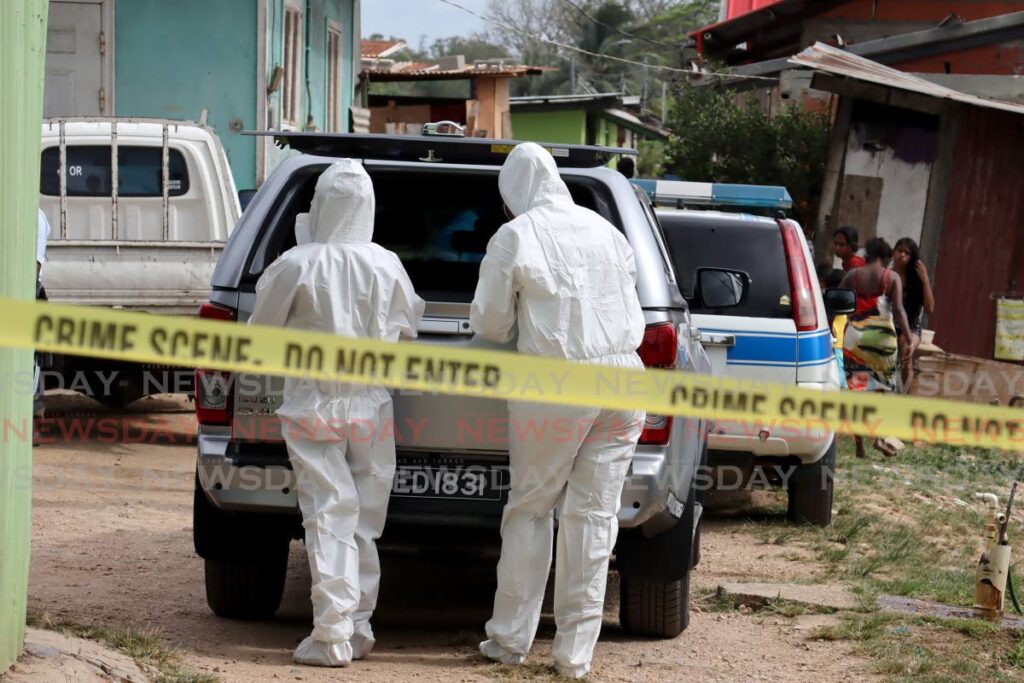
A COUPLE of years ago, the small village in the heart of the St Augustine South community, in an area referred to as the train line, was a close-knit, peaceful community.
Drivers can enter the area via Freeman Road, before turning right onto Warner Street. Seconds later, at a T-intersection, you can get a bird's-eye view of the area. The road continues for a few metres, where to this day, the partly-covered railway tracks stick out from the side of the concrete-paved road. Then the road comes to a dead end.
There are fewer than 20 houses in this village – some ramshackle homes built of wood, blocks and galvanise and others pressed close together in larger yards.
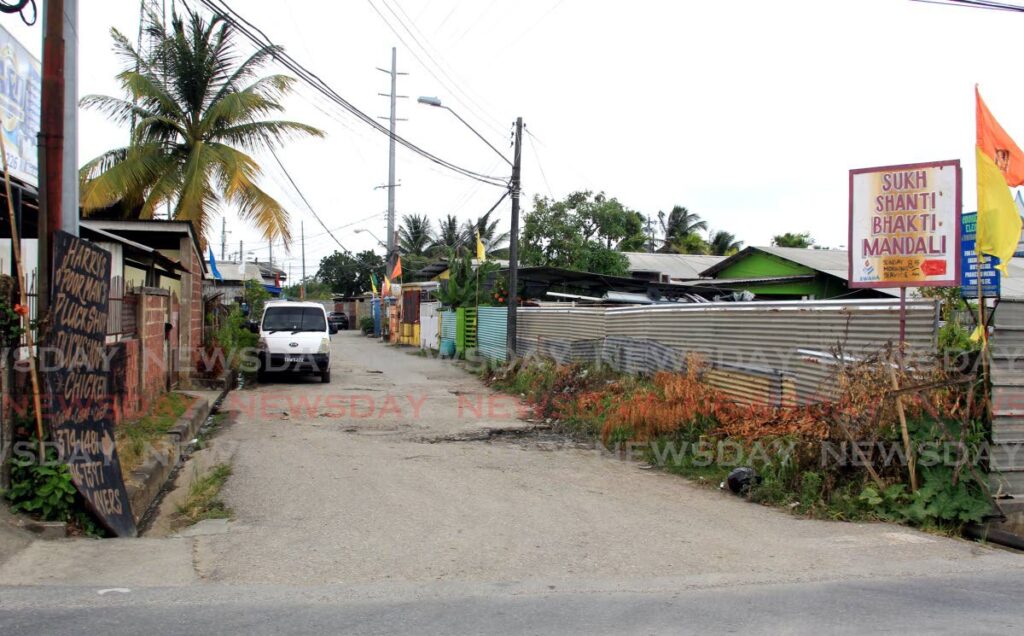
On the outskirts of the village, just a handful of businesses attract customers during the day. There are three parlours that sell basic necessities such as cigarettes, soft drinks and biscuits.
There’s one fruit and vegetable business place – Jeffery's Market place – just outside the entrance to the village. An employee said, as he walked back inside, “That’s their problem to worry about. It not bothering out there,” when asked if the business has been affected by the recent crimes.
At the heart of the community, prayers were heard coming from the Sukh Shanti Bhakti Mandali Hindu temple on Monday between 8 and 10 am. This temple was built by SWAHA nearly two decades ago, according to its website.
For some time, the temple’s presence made a difference in the lives of the residents, but interference from criminals who live nearby have hampered its outreach efforts.
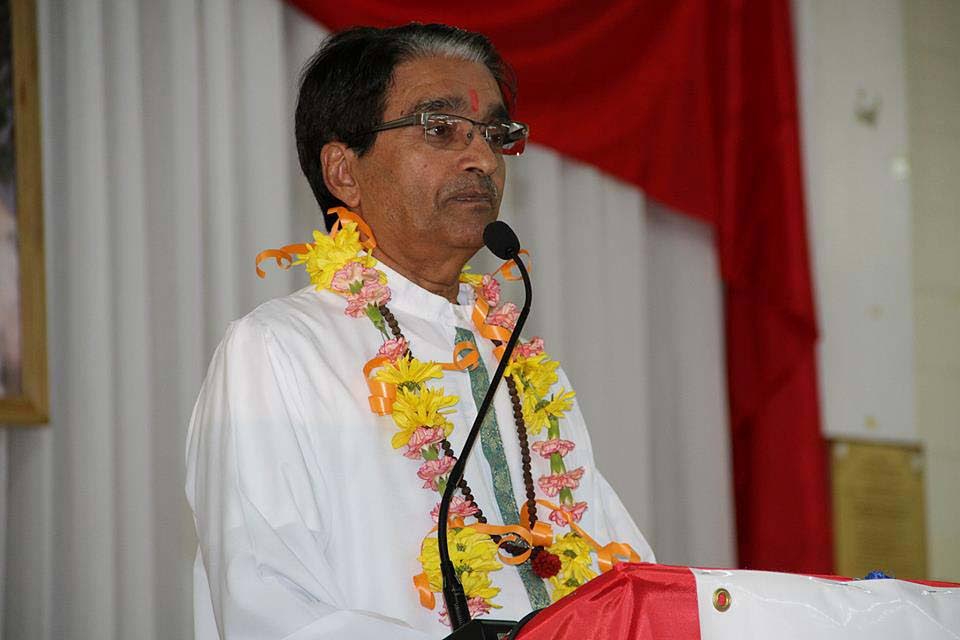
Within recent times the village shot into media attention because of its gut-wrenching, gruesome murders.
Newsday realised many of the residents are related and recent killings there, while not connected to each other, directly affected neighbours.
On January 24, Darshan Ramnauth, 16, was shot dead in front of the temple, days shy of his 17th birthday.
Police said gunmen in a grey Toyota Corolla drove to Freeman Street, St Augustine at around 2.20 pm and shot Geno Shah, killing him instantly and wounding two others, one of whom is a visually impaired man.
As the gunshots went off, Ramnauth ran out of his house to check on his grandmother Soorajie Mahabir, who lives nearby. The gunmen spotted Ramnauth and turned their weapons on him.
On March 3, Aneesa Ramkissoon, 26, was at her Train Line Road home at around 1 pm when two gunmen barged in and shot her as she knelt and begged them to spare her life. Her attackers shot her several times and ran away.
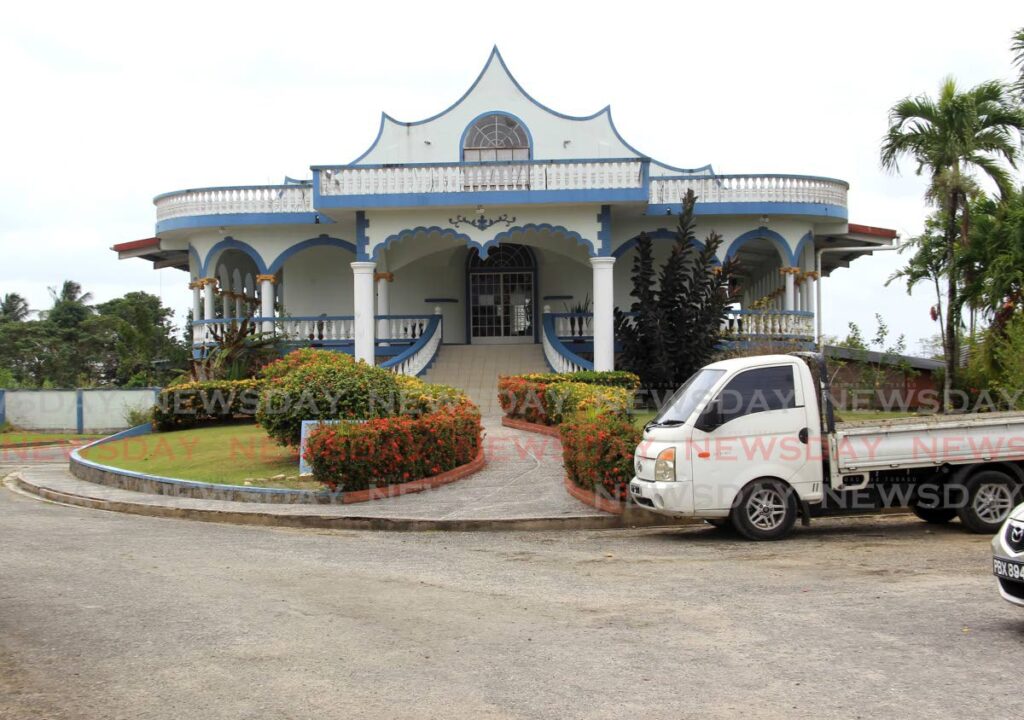
Her one-month-old son, three-year-old daughter and six-year-old son were in the bedroom of the house when she was murdered.
St Augustine MP MP Khadijah Ameen said Ramkissoon had expressed concern about the criminal activities in the area and her safety before she was murdered.
Days afterwards, Ramkissoon’s sister Seema Ramkissoon's house was torched. Seema Ramkissoon said in the wake of her sister's murder, she had received threats and was staying with relatives elsewhere.
She had been upgrading her wooden home to a more sturdy concrete structure when her sister was killed and she started receiving threats and demands to pay "a tax" to criminals.
During a visit to the area on March 8, one Dookiesingh Street resident, who gave Newsday directions, said, “I not even walking in that direction. Over there bad. I’m not sure how they get like that.
"And the people so nice people, you know. I know people over there. But I wouldn’t go there at all. I meet them out on the main road.
He warned Newsday, “If I was you I not going over there alone, because you see they killing down to woman without remorse.”
When Newsday arrived, residents were tight-lipped. Some peeped out through their windows and doors when Newsday called out to them from their gates.
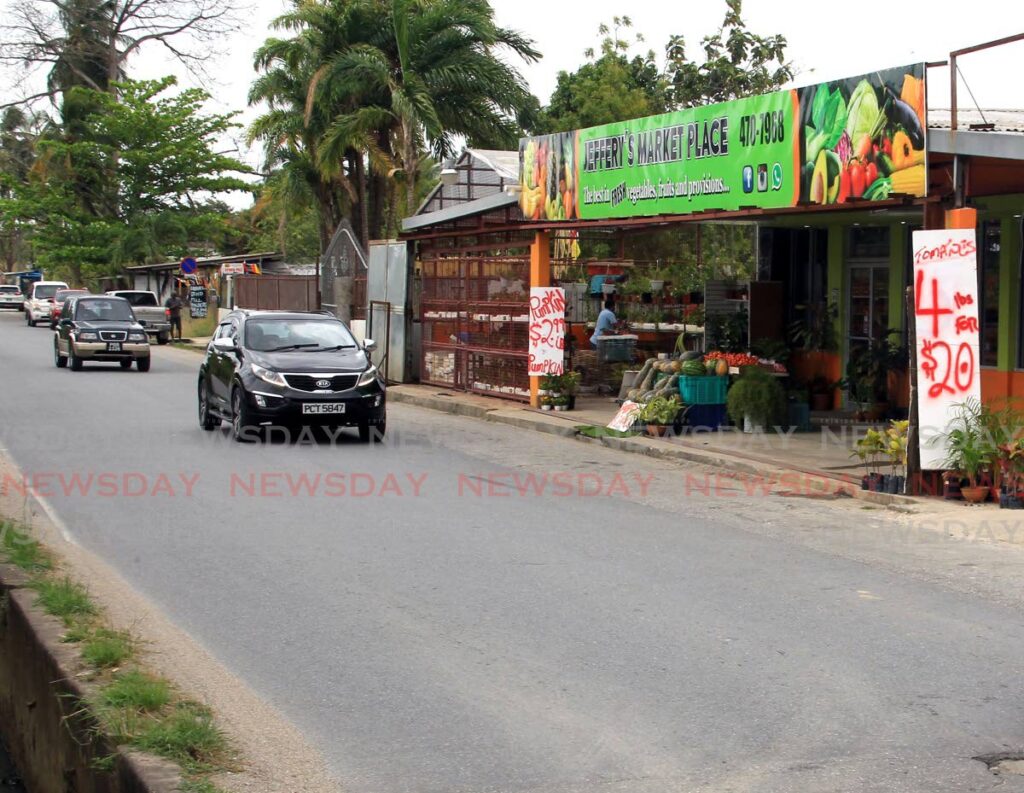
In the week of the most recent murder, the area seemed relatively quiet. The streets were empty, except for a few stray animals taking shade on the corner near the temple. There were cars inside the temple’s carpark, but the gate was locked and there was no activity inside.
Aside from a discarded bullet-riddled front windshield propped on a galvanised fence, the area was well maintained.
Some residents believe the spike in murders in the area is linked to one man who moved there years ago.
For fear of being the next target, they all spoke to Newsday on the condition of anonymity.
One resident
said the Train Line Village had been a safe community when she was a child.
“We and the villagers use to lime in the roads from night into morning. We never had this problem.”
In a follow-up interview, on Friday, the woman told Newsday the family had been receiving multiple threats.
Another woman said she only leaves home for important business, but spends most of her time lock up inside. One other man had no comment expect for "this is how things are now."
Pundit: 'Train Line was always a troubled community'
“You trying to do a good job, but be careful. You might write something. Do your duty, but don’t go there alone.”
This was a warning from SWAHA Trinidad head pundit Hardeo Persad, in an interview with Newsday about the temple’s role in the community.
This was the second warning about visiting or even considering going back to the area.
The temple is one of the first SWAHA institutes built when the organisation first came to TT over 30 years ago, and was strategically placed there because of the need for social and spiritual intervention, Persad explained.
But as SWAHA worked to maintain peace in the community, criminal elements have succeeded in attracting them to crime.
In the past, he admitted, there had always been conflict between residents, but with the recent murder, the community is at its worst.
“It’s a frightening area to be in for many people to come out in the day, and at night is even worse.
“When people are hungry, they want food, they don’t want to hear about God. And when people are in this situation, you find it’s easy to manipulate them, use them for their convince. It’s a very sad state of affairs, and it’s a problem that can’t be solved just like that.
“We are doing all we can to help, but the area is a very depressed area and the right services must be extended to that area...With the passing of time there had been some improvement, but the influence of drugs and other kinds affected the area.
“As a matter of fact, just opposite the temple, a lot of people were out on the street begging. We don't know where they came from, and getting them into the temple was a problem.
"We realise spirituality wasn’t the only problem. Worshipping was never a problem. We always tried to get the whole village involved as best as we could have at that point in time. Fate would have it my brother (Parmanand Persad, who was in charge of the temple) died afterward, and there was a void in the temple.
"We addressed that, and then covid19 came back. Putting all factors together was stressful."
More has to be done to improve life for the residents of the community.
“It’s not only from a spiritual perspective, but...social and otherwise. Something has to be done with these areas and all the areas in Trinidad that have this type of poverty existing."
The temple was built to foster family togetherness and in pursuit of happiness, peace and devotion to God and mankind. Despite the challenges, Persad said, SWAHA will continue to do its best to achieve this goal.
Aside from spiritual guidance, the temple provides training, financing and assistance to the unemployed so they can become productive and resourceful.
“There's a lot of work to be done, and to be honest, it's not being pessimistic, because we have to try – but sometimes you don’t get a good vibe about everything. We need more social institutions involved. The place is depressed.”
He added: “SWAHA is strategising on what we can do for that area. Many people don’t come (to) the temple again for a different reason.
"We are in a place of rebuilding. It seems spirituality – the milk of human kindness – has gone dead.”
Questions sent to the head of the police corporate communications unit Joanne Archie went unanswered. Head of the Northern Division ACP Wayne Mystar, who is on vacation, referred Newsday to Supt Brian Ramphal. But calls and messages to Ramphal also went unanswered.

Comments
"Train Line Village: Tiny, desolate community crushed by crime"